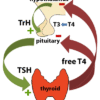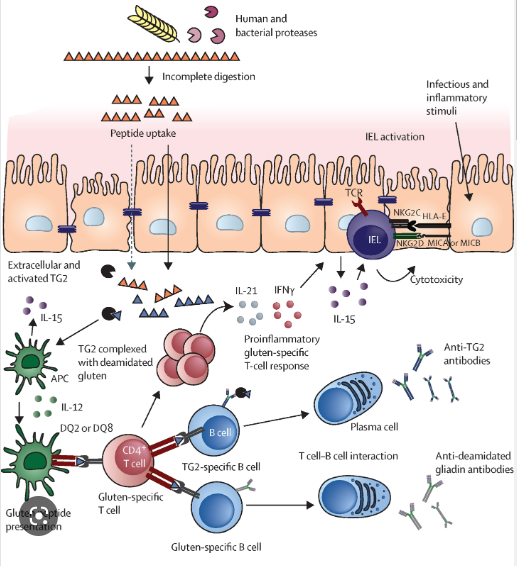Gliadin IgG/IgA Ab Prof, EIA
$68.00
CPT# 83516 x 2
Uncover Gluten Sensitivity and Celiac Disease
The Gliadin IgG/IgA Ab Prof, EIA (Enzyme Immunoassay) test measures the levels of IgG and IgA antibodies against gliadin, a component of gluten found in wheat and related grains. This gluten sensitivity testing is useful for assessing an individual’s immune response to gliadin, which can provide insight into possible gluten-related disorders, such as celiac disease, non-celiac gluten sensitivity (NCGS), or a wheat allergy.
The test is particularly useful in the following scenarios:
- Celiac disease: A positive result for IgA anti-gliadin antibodies, in conjunction with positive results for tissue transglutaminase antibodies (tTG) and/or endomysial antibodies (EMA), may indicate the presence of celiac disease. It’s essential to confirm the diagnosis through a small intestinal biopsy.
- Non-celiac gluten sensitivity: Elevated levels of IgG and/or IgA antibodies against gliadin in the absence of positive tTG or EMA tests, along with negative biopsy results, may suggest non-celiac gluten sensitivity. However, this diagnosis is often made by ruling out other possible causes, monitoring symptom improvement on a gluten-free diet, and noting symptom recurrence upon gluten reintroduction.
- Wheat allergy: While the gliadin IgG/IgA test is not specifically designed for diagnosing wheat allergies, elevated antibody levels may indicate an immune response to wheat proteins. Further testing, such as skin prick tests or IgE antibody tests, may be necessary to confirm a wheat allergy diagnosis.
It’s crucial to consult a healthcare professional if you suspect any gluten-related disorder, as they can guide you on the appropriate testing and follow-up actions based on your specific needs and health status. Keep in mind that the gliadin IgG/IgA test alone is not definitive for diagnosing gluten-related disorders, and additional testing or clinical evaluation may be necessary.


